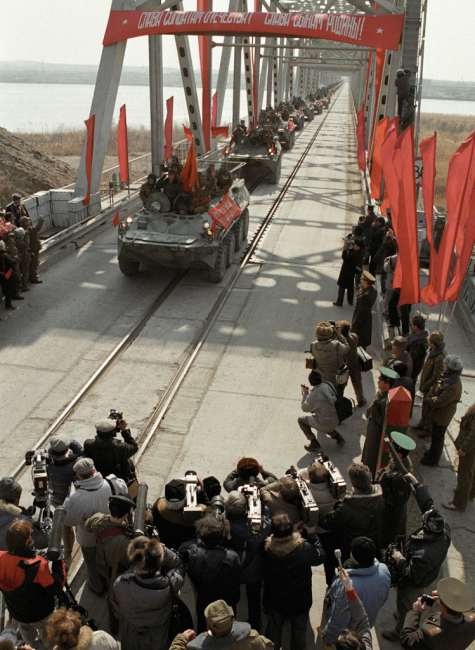Die Themenlinine versammelt Projekte, die zu Gewalt und militärischen Konflikten in Osteuropa forschen.
Osteuropäische Gewalt- und Militärforschung

Bildinfo
Die letzten sowjetischen Truppen überqueren die Grenze zur Sowjetunion, nachdem sie Afghanistan verlassen haben, 1. Oktober 1989. Photo: A. Solomonov, RIA Novosti archive, image #58833, CC BY-SA 3.0
